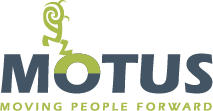Who makes an interview great, the candidate or the hiring manager?
Trick question. The answer is actually both! For an interview to go well, a candidate has to be prepared, but it is equally as important for the interviewer to bring their A-game to the meeting. Much like an interviewee needs to prepare for the meeting, the hiring manager should do the same preparation from their perspective.
Wowing the candidate and representing the company in the best light is just as important as the candidate showcasing their best skills and experiences for the job. Here are 6 best interviewing practices to wow candidates and ensure that you make the most of the time spent together.
1) Set up for success, not stress!
Let’s face it, interviews are intimidating. Nerves running high, it is an unfamiliar territory with unfamiliar people, and the subject matter is loaded–employment! Yikes! We’ve all been there.
The best way to help the candidate feel confident and ready to deliver is to give them the tools they need to prepare for the interview. Send them a job description, communicate details on who they will be meeting with, and give a time frame they can expect to be in the meeting; candidates should know everything. Great interviewers make sure that their candidates are not subject to surprises, tricks, or confusion. The goal is to make the experience awesome because there is only one chance to make a first impression!
2) Research, research, and…oh yeah, RESEARCH!
Candidates are always told that it is important to research the company and their interviewer before they take an interview. It is a great rule of thumb for candidates, but it should also be the practice of a good interviewer. Your research beforehand will help to create strong “match based” questions for the interview.
- Study the resume, and focus on all aspects that make the person unique, not just the companies and job titles. The person applied to the role for a reason! Take time to identify the strengths reflected in their experience that could be an asset to your business.
- Study any patterns or trends in their experience. What does their experience say about their career goals and how will that fit into the objectives of your company and business needs? The goal is to read between the lines and get a sense of who this person is within the writing.
- Longevity and job stability are important to consider but are not always indicative of someone’s personality. If there is a red flag, perhaps prepare to ask questions around this during your meeting to find meaning and explanation. A resume should tell a story, and stories are always best when read and explained by the author! Give the candidate a chance to explain themselves.
- Social media is another way to do some quick research and can provide some helpful insight into a person’s interests, and hobbies.
The bottom line is that great interviewers know as much as possible ahead of time because they want to, and because being prepared will allow for the best use of time during the meeting.
3) What is the end game? Remember the result.
Excellent interviewers and employers only hire when it is strategically necessary in order to fill a business need or solve a critical challenge. Identifying strengths and understanding the credentials is all great, but keeping the end goals of filling the position is key to picking the right person for the role. What is it you are looking for and can this person deliver the results? Looking at the overall culture fit, skills match, and personality fit when interviewing is part of the decision-making process, of course, but at the end of the day it is about who can deliver. Using a “match-based approach” when interviewing can help when thinking outside the standard skills and experiences. Identifying specific qualities and skills in the person you are interviewing will ensure you get the right person for the job.
4) Monkey see monkey do
An excellent interviewer always matches the pace, tone, and body language of the person they are talking with. When the candidate is comfortable, they will give more information, and shine a light on who they really are. Comfortability is key in breaking down barriers and getting to the core of what you are searching (or trying to avoid) for. Some candidates are just uncomfortable, nervous, or just don’t interview well. Working to relax the candidate by referencing or complimenting the things you researched is a great way to break down walls and show the interviewer they are generally interested in what they have to offer or have done. If you are genuine and make them feel welcome while matching the tone, language, and style of the candidate, you will warm them up and leave a great impression. Even if the person is not a fit, the goal is to make them feel like it was a GREAT interview regardless.
5) Avoid the script!
It is easy to be nervous as an interviewer, watching the time, making sure all the questions get asked all while listening intently and trying to see if this person in front of you is right for your important business need. It’s overwhelming and easy to read from a scripted list of questions. At all costs, do not do this! Instead, guide the interview as a conversation, working in questions as you go. Doing the prep work and research will help with this because there will likely be some questions you would like to ask directly related to the person’s experience or interests versus simply reading and writing off an internet printed “top 20 questions to ask when interviewing.” This style will make the candidate feel engaged, answer specific questions you have, and give the best shot at making a long-term match that will produce the positive, desired results.
6) The moment of truth…
It’s that time, the interview is coming to an end, so what’s next? Providing closure to the interview is such an important piece. Every candidate is asking themselves “did that go okay?” “what’s next?” “Are they going to hire me?”. Not giving any sort of next steps or direction can cause stress, it can leave room for assumption, and ultimately is an unprofessional way to end a meeting. Instead, describe the next steps for the candidate, follow up on those steps when you say you will, and always contact the candidate in the process if there is an unexpected delay or pause. In a tight and quickly moving market, keeping candidates engaged, warm, and feeling confident in the forward movement will help keep the process positive from start to finish. One of the main complaints from candidates post interview is that no one ever got back to them. It’s a terrible, open-ended feeling. Providing closure is the right way to go.
Being an excellent interviewer takes time, practice, and a desire to get to know people. Having an open mind, setting the candidate up for success, and being a warm, welcoming, and prepared interviewer will ensure positive interactions and great experiences for the people you meet! Practicing to be a great interviewer will not only benefit the candidate, but also the company, which will pave the way for growth and desired results!







